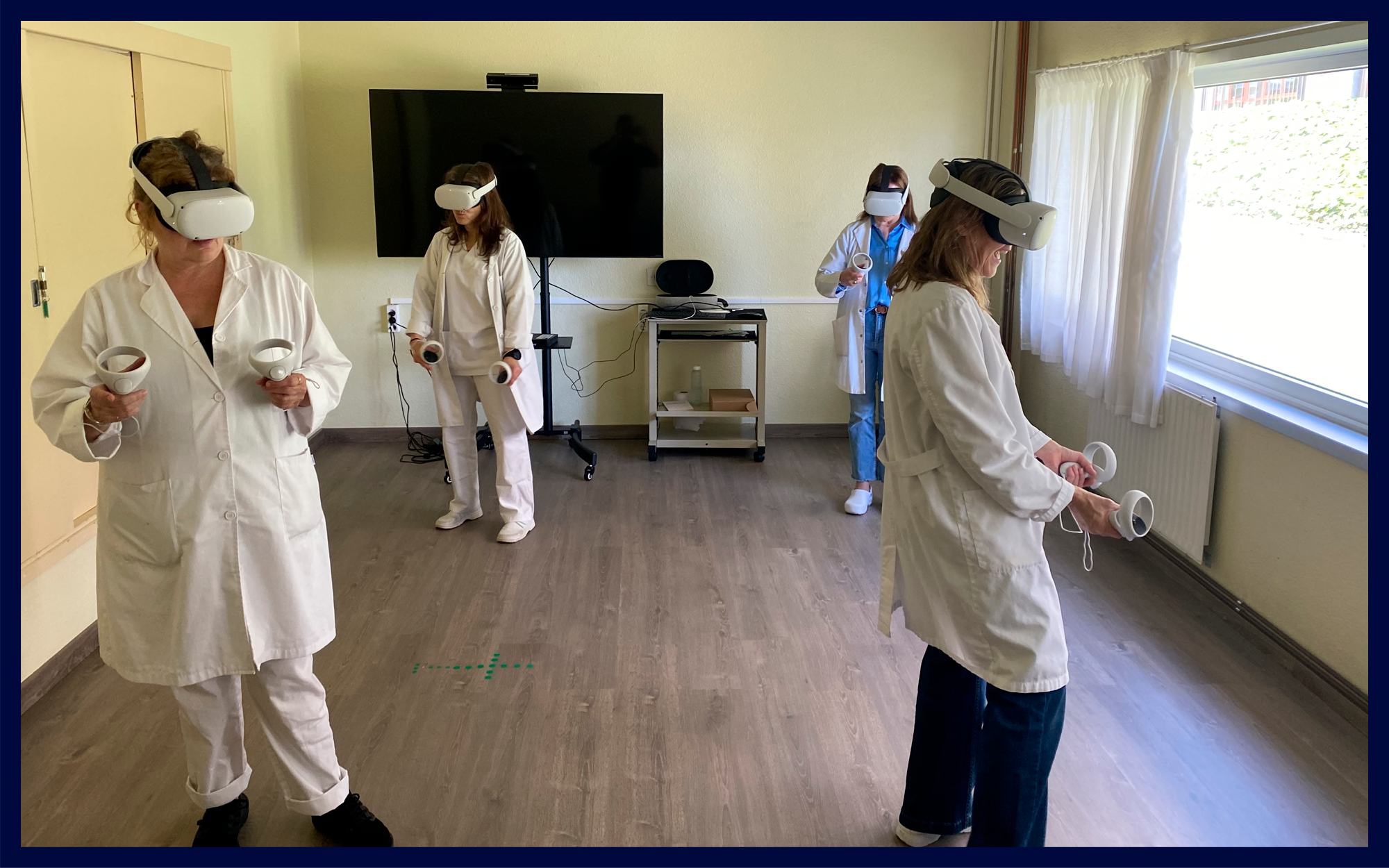Virtual Reality
Selection of Virtual Reality video games of interest for the CAPD.
General description of the project
Virtual reality headsets can offer an immersive and stimulating experience for people with disabilities. These technologies can be adapted to provide safe and controlled virtual environments that allow people with disabilities to explore new settings and activities in an accessible way. For example, everyday situations such as going shopping can be recreated, allowing individuals to practice and improve social and autonomy skills in a virtual environment before facing real-life situations.
Selection of virtual reality experiences adapted for people with disabilities. These tools allow users to explore safe and simulated environments, practice daily living activities, and enhance social and cognitive skills through interactive and motivating situations.
The games and experiences were chosen according to the needs of professionals and users, prioritizing content that strengthens cognitive and motor skills. Accessibility options were also configured to ensure a comfortable and inclusive experience.


Technical breakdown of the project
The virtual reality subproject is based on the use of Meta Quest 3 headsets to provide immersive experiences adapted for people with disabilities. These tools make it possible to create safe and controlled virtual environments that facilitate the exploration of scenarios and activities in an accessible way, promoting both autonomy and social skills among users.
Before implementation, an initial selection of virtual reality games and experiences was carried out and later evaluated individually by the project team. This process made it possible to identify the most suitable and adaptable content for the needs of users in the different centers. The selection criteria prioritized activities that enhance cognitive and motor skills, as well as those that offer motivating and safe interaction.
To ensure the proper use of the headsets and maximize their potential, training sessions were held in all centers for the professionals involved. These training sessions ensured that staff members were familiar with all features, accessibility settings, and usage protocols, allowing them to provide a comfortable, inclusive, and effective experience for participants.
Team
- Dr. Jose Carlos Dafonte Vázquez, computer engineer, LIA[2] research group
- Paula de Santos Dorrego, occupational therapist, TALIONIS research group
- Raúl Fraiz Gómez, occupational therapist
- Manuel Lagos Rodríguez, computer engineer, TALIONIS research group
- Jorge Rivadulla Brey, computer engineer, TALIONIS research group
- Iago Fernández Garrido, computer engineer, TALIONIS research group


